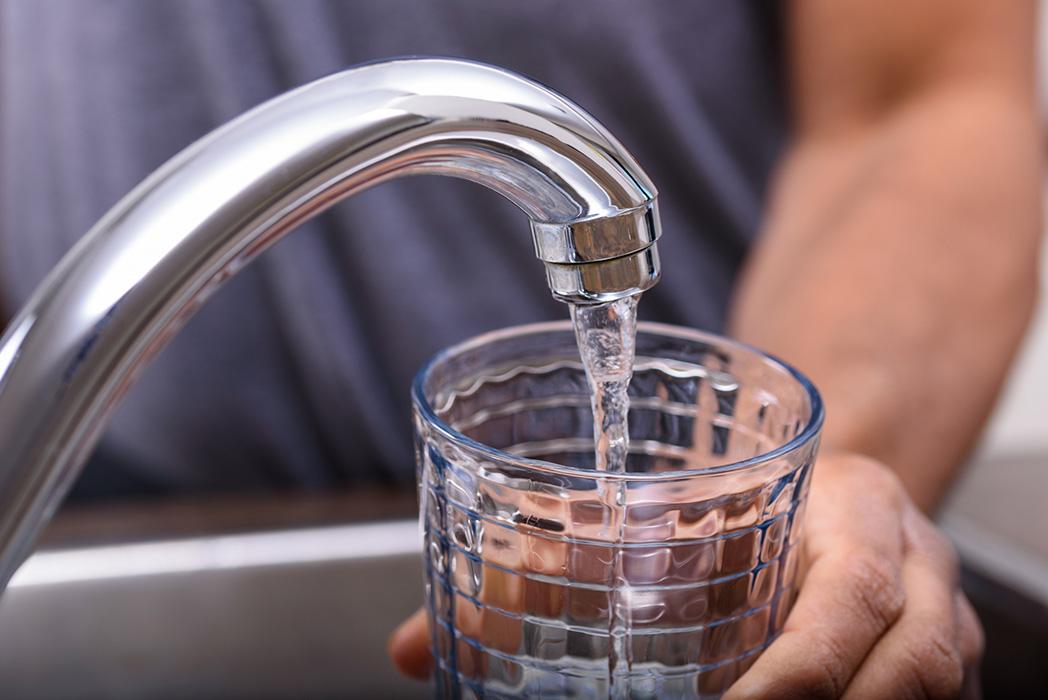
When routine testing turned up a microscopic parasite in Baltimore’s water supply last fall, a University of Maryland environmental health researcher joined many other residents across central Maryland wondering, “Is my drinking water safe?”
Assistant Research Professor Leena Malayil’s home in Howard County receives water from the Druid Lake Reservoir in the city, where officials detected Cryptosporidium or “Crypto”—a parasite that can cause gastrointestinal issues particularly risky for older people, children and those with weakened immune systems.
While Malayil’s family didn’t fall sick, this experience reinforced her commitment to a new Grand Challenges Grants project she’s leading with fellow environmental health Assistant Research Professor Rianna Murray, environmental health Professor Amy Sapkota, engineering Professor Allen Davis, environmental health Associate Professor Paul Turner, Post-Doctoral Fellow Suhana Chattopadhyay and Program Manager Georgia Parolski.
The Maryland Safe Drinking Water Analysis and Testing for Education and Research (WATER) study examines the quality of public drinking water systems and private wells in Maryland communities using a combination of citizen science, field-based research and laboratory analyses. The overall goal: to create the first database of chemical and microbiological contaminants of both public drinking water systems and private wells in Maryland.
“The launch of the Maryland Safe Drinking Water study couldn't have come at a more critical time,” Malayil said. “It is a significant step in safeguarding the well-being of our community by ensuring clean, safe drinking water.”
More than five million Maryland residents rely on over 3,400 public water systems, while more than one million are connected to private wells.
Under the federal Safe Drinking Water Act, the Environmental Protection Agency sets drinking water quality standards and oversees states, cities and suppliers that implement those standards. The act does not regulate private wells serving less than 25 people.
While Maryland routinely tests its public water, contamination still occurs. For example, E. coli bacteria was found in West Baltimore residents’ water supply in 2022, prompting the city to issue a boil water advisory for public drinking water systems, Malayil said.
Previous studies have also detected per- and polyfluoroalkyl substances (PFAS), known as “forever chemicals” and are linked to conditions like high cholesterol, thyroid disease and ulcerative colitis, in approximately 1.3% of Marylanders' public drinking water.
“Our comprehensive initiative goes beyond standard testing parameters, covering both public municipal water and private wells, which are currently beyond the purview of the Safe Drinking Water Act,” Malayil said.
Research team members, including School of Public Health students, began recruiting study participants this past summer at county fairs throughout the state. The volunteers use commerical at-home kits to test their water for bacteria and chemicals like copper and lead. These results may lead to additional site testing for PFAS, arsenic, salmonella, E. coli and more.
The team hopes to enroll 500 participants within the next year, with water from each of the state’s 23 counties and Baltimore City represented.
“This study is important because a lot of people don’t know what’s in their water sources nowadays, and chemicals and bacteria can have a lot of surprising effects on the human body,” said Miranda Mathews ’23, a public health science graduate who was an intern for the project. “It’s also good for them to test their water at home by themselves so they can be invested.”
After completing analyses of water samples, researchers will work with University of Maryland Extension and community partners to offer safe drinking water workshops throughout the state, Murray said.
“These workshops will focus on educating attendees about the Safe Drinking Water Act, understanding best practices for maintaining private wells and ensuring the safety of residential drinking water,” she said.